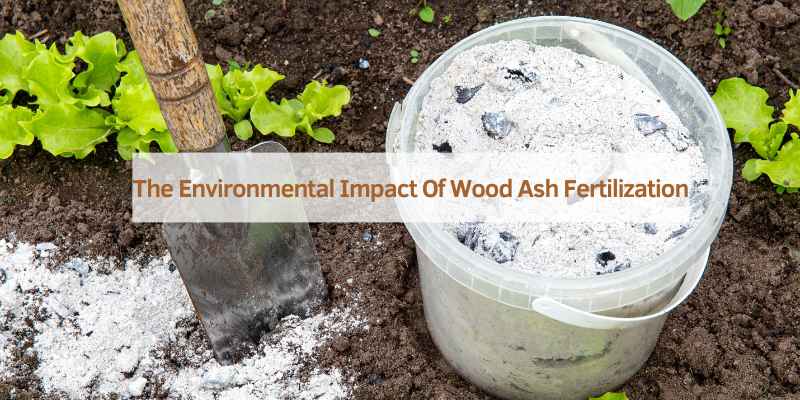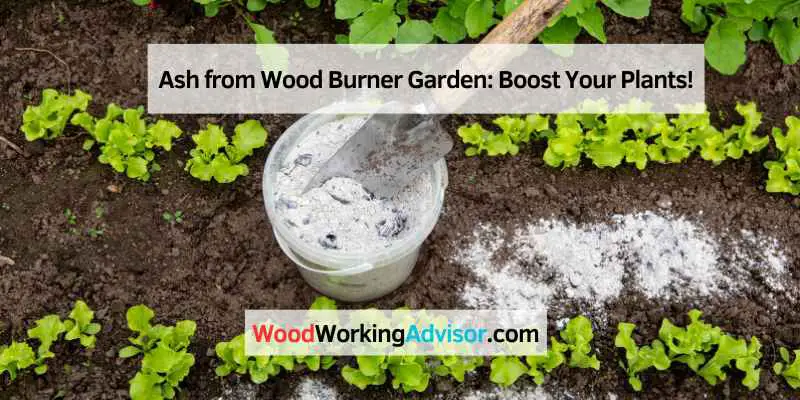Answer to Ash:
Yes, we offer a wide range of wood burners suitable for gardens. Our products are both efficient and stylish.
Wood burners have become a popular addition to garden spaces. They provide warmth and create a cozy atmosphere for outdoor gatherings. Selecting the right wood burner can transform your garden into a functional and inviting space. Our wood burners come in various designs to suit different tastes and needs.
They are not only efficient in heating but also add a touch of elegance to your garden. Investing in a quality wood burner ensures long-lasting performance and enjoyment. Explore our collection to find the perfect wood burner for your garden. Your outdoor space deserves the best in both functionality and style.
Ash From Wood Burners: A Gardening Goldmine?
Ash from wood burners can enrich your garden soil. It contains valuable nutrients like potassium and calcium. These nutrients help plants grow strong and healthy. Ash can also improve soil structure. This makes it easier for roots to access water and air.
Wood ash can raise soil pH levels. This is good for plants that prefer less acidic soil. Spread a thin layer of ash over your garden beds. Be careful not to overdo it. Too much ash can harm plants. Always test your soil before adding ash.
Wood ash can also deter pests. Sprinkle it around plants to keep slugs and snails away. The ash dries out their bodies, making it hard for them to move. This natural method is safe for your plants and the environment.

The Nutritional Profile Of Wood Ash
Wood ash contains important minerals that help plants grow. These minerals include calcium, potassium, and magnesium. Calcium helps plants build strong cell walls. Potassium helps plants make food from sunlight. Magnesium helps plants stay green and healthy. Using wood ash can make your garden flourish. It is a natural way to feed your plants.
Wood ash can change the pH level of your soil. It makes the soil less acidic. Acidic soil can harm plants. Before using wood ash, check your soil’s pH level. Use a pH meter or a test kit. Apply wood ash if the soil is too acidic. Too much ash can hurt your plants. Use only a small amount at a time.
Safety First: Using Ash In Your Garden
Always use ash from untreated wood. Treated wood contains chemicals that can harm plants. Only use ash that is cool and dry. Wet ash can clump and cause problems. Spread ash evenly over the soil. Never pile ash in one spot. Too much ash can raise the soil pH too high. This can hurt your garden plants. Mix the ash into the soil well. This helps it spread out evenly.
Avoid using ash from painted or stained wood. These types of wood have harmful chemicals. Never use ash from pressure-treated wood. These contain dangerous substances like arsenic. Ash from natural, untreated wood is best. Look for ash from hardwoods like oak or maple. Softwoods like pine can be used, but in smaller amounts. Always check the source of your ash. Ensure it comes from a safe and natural wood source.
Step-by-step: Adding Ash To Your Garden
Measure the size of your garden. Use about one cup of ash per square meter. Too much ash can harm plants. Check the pH level of your soil. Ash raises the pH, making soil less acidic. Test the soil before adding ash. Only use ash from untreated wood. Avoid ash from painted or treated wood.
Spread the ash evenly over the soil. Wear gloves to protect your hands. Use a rake to mix ash into the soil. Do not let ash touch plant stems. Water the garden after adding ash. Store ash in a dry place. Keep ash away from kids and pets. Use ash in moderation for best results.
Composting With Wood Ash
Adding wood ash to your compost pile can be very beneficial. Ash provides essential nutrients like calcium, potassium, and magnesium. These nutrients help in creating a balanced compost. Ash helps to neutralize acidic compost. This creates a better environment for decomposition. Always use ash sparingly. Too much ash can make the compost too alkaline. Mix ash thoroughly into the compost to avoid clumping.
Wood ash speeds up composting by increasing the pH level. This makes the composting process faster. Ash helps in breaking down organic matter quickly. It also helps in controlling odors. Using wood ash creates heat, which accelerates decomposition. Always ensure proper balance in your compost to avoid overuse of ash.
Troubleshooting Common Ash-related Issues
Too much ash can make soil too alkaline. This can harm plants. Test the soil’s pH level to check. Use a soil test kit from a garden store. Add sulfur or peat moss to lower pH levels. This will make the soil less alkaline. Mix the ash well into the soil for even distribution. Spread only a thin layer of ash. Avoid using ash on acid-loving plants like blueberries.
Using too much ash can burn plants. Measure the ash before adding it to the soil. A small amount goes a long way. Mix ash with compost to dilute its strength. This helps prevent burning. Water the plants well after adding ash. This helps to spread nutrients evenly. Observe plants for signs of stress. Adjust ash use if you see wilting or yellowing.
Ash And Pest Control: A Natural Remedy?
Wood ash can help keep pests away from your garden. It acts as a natural barrier. Sprinkle ash around plants to stop slugs and snails. These pests avoid crawling on rough surfaces. The ash also absorbs moisture, making it harder for them to move.
Ash can deter ants and beetles too. Create a line of ash around your garden beds. This stops the insects from crossing. Wood ash also contains valuable nutrients. These nutrients help enrich the soil, promoting healthy plant growth.
Wood ash is effective against many garden pests. It works well against soft-bodied insects. These include slugs, snails, and some beetles. The ash creates a barrier that is hard for them to cross. It can also dry out the insects, making it hard for them to survive.
Ants dislike wood ash as well. Sprinkle it in their path, and they will avoid it. Ash can also deter some types of caterpillars. Apply it lightly on leaves where caterpillars feed. The ash will irritate them, causing them to leave.
Creative Uses For Wood Ash In The Garden
Wood ash can be a great natural fertilizer for your garden. It adds essential nutrients like potassium and calcium. Sprinkle a thin layer of ash over your garden beds. This improves the soil quality and plant health. You can also use ash to create garden pathways. Mix it with gravel for a sturdy path. Ash can be added to compost piles to speed up the process. Just add small amounts to avoid overloading the pile.
Use wood ash to keep your pond water clear. Sprinkle a small amount of ash into the water. It helps to reduce algae and keeps the water fresh. Ash can also be used to clean garden tools. Rub ash on rusty tools to make them shine again. In ornamental gardens, ash can be used as a pest deterrent. Sprinkle it around plants to keep slugs and snails away.
The Environmental Impact Of Wood Ash Fertilization
Wood ash can be a great fertilizer for gardens. It helps recycle nutrients back into the soil. Plants need these nutrients to grow strong. Using wood ash reduces the need for chemical fertilizers. It helps keep the soil healthy and rich. This practice supports sustainable gardening. It also lowers waste by reusing what would be trash. Wood ash is a natural way to give back to the earth.
Using wood ash can reduce carbon emissions. It avoids the production of synthetic fertilizers. Making synthetic fertilizers releases a lot of carbon dioxide. Wood ash is a byproduct that would otherwise be wasted. By using it, we make the most of our resources. This practice is eco-friendly and helps fight climate change. It supports a greener planet by lowering our carbon footprint.

Frequently Asked Questions
Is Wood Stove Ash Good For Gardening?
Yes, wood stove ash can be good for gardening. It provides essential nutrients like potassium and calcium. Use sparingly to avoid soil alkalinity.
Which Plants Do Not Like Wood Ash?
Plants like blueberries, azaleas, rhododendrons, and hydrangeas dislike wood ash. These plants prefer acidic soil conditions. Wood ash increases soil pH, making it alkaline, which can harm these plants.
Can I Put Fire Pit Ashes In My Garden?
Yes, you can use fire pit ashes in your garden. They add potassium and lime, improving soil health. Ensure ashes are wood-based and free from chemicals. Avoid using too much to prevent soil pH imbalance.
Can Wood Stove Ash Be Composted?
Yes, wood stove ash can be composted. It enriches compost with potassium and trace minerals. Use sparingly to avoid alkalinity.
Conclusion
Using ash from your wood burner can boost your garden’s health. It’s a natural, eco-friendly solution. Remember to apply it sparingly to avoid over-alkalizing your soil. Your plants will thrive with this simple, sustainable practice. Try incorporating wood ash into your gardening routine for vibrant, lush growth.
Happy gardening!


